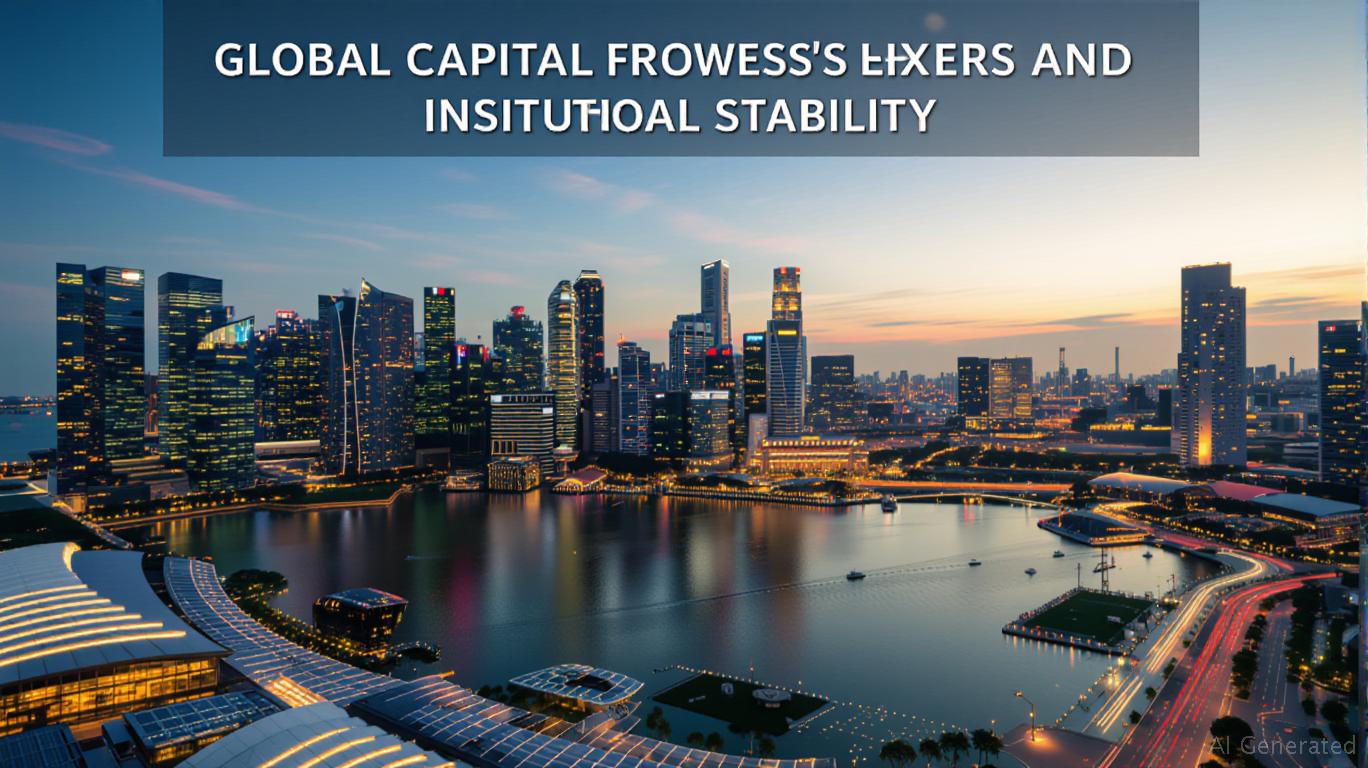
Lotte Property & Development’s $300 million bond issuance, maturing in 2028 and guaranteed by Kookmin Bank, marks a strategic pivot to capitalize on the current macroeconomic landscape. Listed in Singapore, the bond combines the allure of emerging market opportunities with the discipline of sustainability-linked instruments, while balancing risks tied to regional volatility and rising interest rates. Here’s how investors should parse this complex offering.
The Guarantor’s Role: Kookmin Bank’s Credit Strength Anchors Confidence
The bond’s most compelling feature is its guarantee from Kookmin Bank, South Korea’s largest lender by assets, rated Aa3 (Stable) by Moody’s Investors Service. This rating reflects Kookmin’s robust capitalization (part of KB Financial Group, with over $557 billion in assets) and conservative risk management.  .
.
Kookmin’s backing effectively mitigates counterparty risk, a critical advantage in an environment where Lotte Property’s standalone credit rating was downgraded in Q2 2025 due to its parent company’s financial struggles. While Lotte Corporation’s restructuring efforts—such as asset sales generating ~KRW 1.5 trillion—stabilize liquidity, the bond’s guarantee elevates its credit profile to near-sovereign levels, making it attractive to conservative institutional investors.
Structural Advantages: Sustainability and Low-Yield Demand
The bond’s sustainability-linked framework aligns with Asia’s ESG investing boom, where over $1.5 trillion is projected to flow into green bonds by 2025. By tying coupon payments to metrics like carbon emissions or affordable housing targets, Lotte Property taps into a growing investor base prioritizing environmental and social impact.
Moreover, the 2028 maturity coincides with a period of expected yield scarcity. With global central banks tightening, the bond’s fixed-rate structure offers a hedge against rising rates—provided investors hold to maturity. . Its premium over risk-free rates (likely 200–30/ basis points) reflects its corporate risk but is offset by Kookmin’s guarantee.
Risks: Navigating Volatility and Rate Cycles
The bond’s risks are twofold. First, regional economic volatility in Asia—driven by China’s growth slowdown or geopolitical tensions—could strain Lotte Property’s operations, which rely on construction demand in markets like Singapore and Indonesia. Second, rising interest rates pose a liquidity risk if refinancing costs spike before 2028.
Lotte Property’s parent, Lotte Corporation, faces lingering challenges: its petrochemical division (Lotte Chemical) remains burdened by oversupply and weak demand, despite asset-light restructuring. A downgrade to speculative-grade ratings (below BBB-) could trigger cross-default clauses, though the guarantee mitigates this.
Investment Thesis: A Balanced Play for Yield Seekers
This bond offers a compelling risk-reward tradeoff. The Kookmin guarantee reduces default risk to near-investment-grade levels, while the sustainability-linked structure and Singapore listing attract ESG-conscious capital. The 2028 maturity provides a buffer against near-term rate hikes, though investors must weigh potential mark-to-market losses if rates rise sharply.
Recommendation: For fixed-income portfolios seeking yield above government bonds, this offering is a buy. Hold to maturity to avoid refinancing risks, and pair with shorter-dated instruments to balance duration exposure. The bond’s hybrid credit profile—backed by a top-tier bank but priced for corporate risk—positions it as a bridge between safety and return in an era of yield scarcity.
In sum, Lotte Property’s bond issuance exemplifies how issuers leverage guarantees, sustainability, and strategic markets to navigate turbulent macro conditions. For investors willing to parse the nuance, it’s a gateway to Asia’s growth story with institutional underpinnings.






